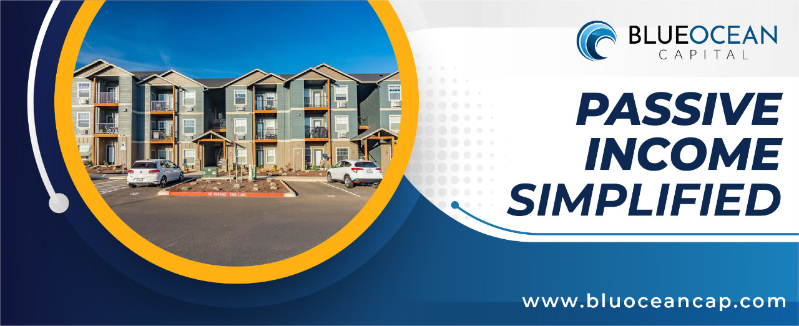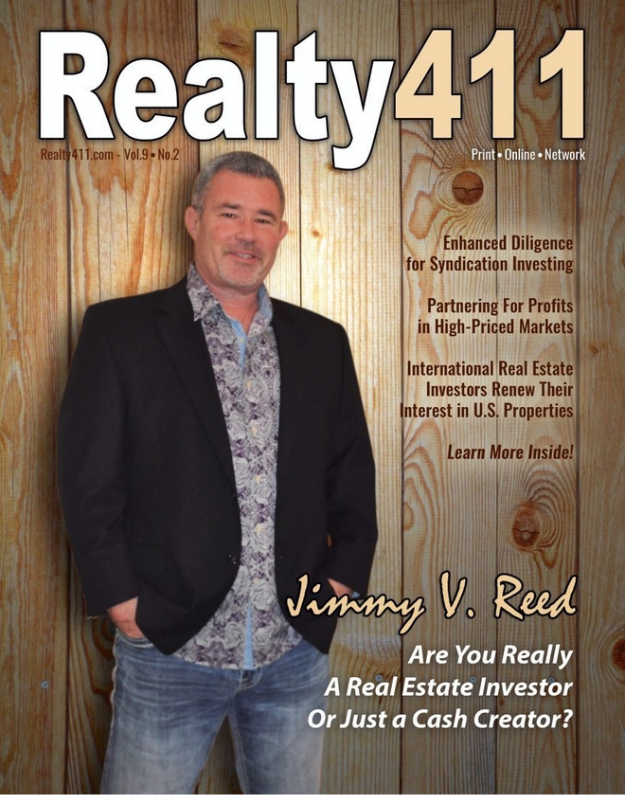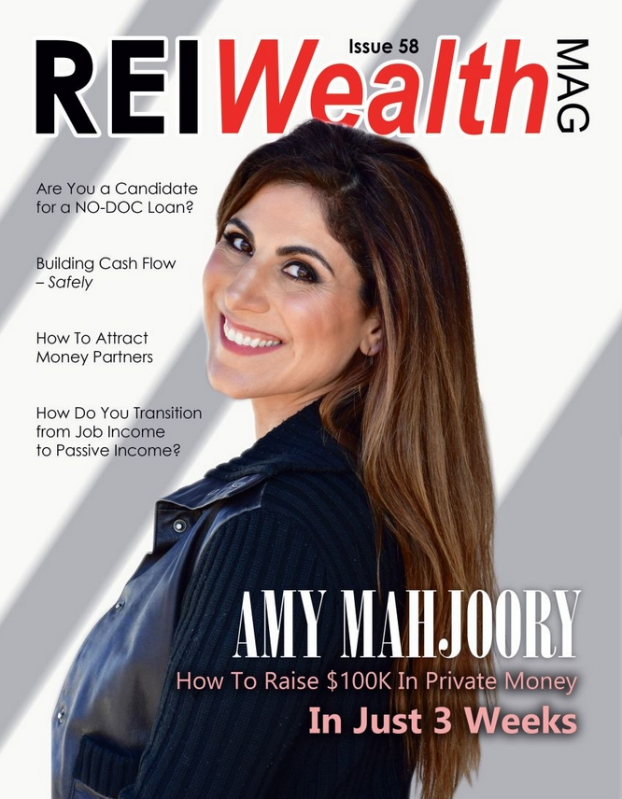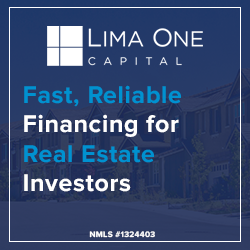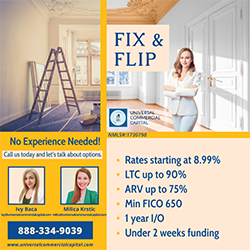Is It Worthwhile Investing When Interest Rates Are Higher?
Image from Pixabay
By Adiel Gorel
Many investors are asking, now that interest rates have gone up by 2% relatively quickly, and home prices are up significantly from a couple of years ago, whether buying single-family rental investments is still something to consider.
The main point, at the heart of the matter, is that we can get a 30-year FIXED rate loan when buying single-family homes (technically 1-4 residential units) in the United States. This point is so dominant, it supersedes any other consideration. Surprisingly few investors seriously take this dominant factor into consideration.
ADVERTISING
For some who have read other materials I have written, the following is a bit of a repetition, but it’s well-worth understanding this point fully. The 30-year fixed rate loan does not usually get its due as an amazing financial tool that should be utilized by any savvy investor who can get it.
For many foreigners, it is incomprehensible that in the US we can get a loan that will never keep up with the cost of living for 30 years. During that period, essentially everything else DOES keep up with the cost of living, including rents. Only the mortgage payment and balance (which also gets chipped down by amortization) do not keep up with inflation.
You can talk to many borrowers who have taken 30-year fixed rate loans and after, say, 14 years, realized that although there are 16 years remaining to pay off the loan, the loan balance AND the payment seem very low relative to marketplace rents and prices. The remaining 16 years are almost meaningless, since in many cases (statistically and historically) the loan balance will be a small fraction of the home price and not very “meaningful.” Just to get some perspective, most other countries on Earth have loans that constantly adjust based on inflation. Both the payment and the balance track inflation all the time—usually with no yearly or lifetime caps as adjustable loans have in the US.
Image from Pixabay
The power and positive effect on one’s financial future gets magnified when you consider that in 2022, we are still in a period in which interest rates are very low. While investors cannot get the same favorable rates as homeowners, it is nevertheless quite common nowadays to see investors getting a rate of between 5.75% and 6.25% on single-family home investment properties. From a historical perspective, these are very low rates. Most experts think that, in the future, mortgage rates will rise further. From a historical perspective, even 7.5% is considered a relatively low rate. These days, you can “turbo boost” the great power of the never-changing 30-year fixed rate loan by locking in these still-low rates, which will never change. If in the following years interest rates indeed go up, you will feel quite good about having locked under-6% rates forever.
Once you have gotten your fixed rate loans, two inexorable forces start operating incessantly: inflation erodes your loan (both the payment and the remaining balance), and the tenant occupying your SFH pays rent, which goes in part towards paying down the loan principal every month. These two forces create a powerful financial future for you.
Many of us have been “spoiled” during the COVID Pandemic that started in 2020. The Fed lowered rates to the very lowest point in the history of the US. Homeowners could get loans at 2.75%, and even a bit less. Investors could get loans at 3.5%, 3.75% or 4%. Happy times.
Recently, rates rose quite quickly. Homeowners now get loans at 5% or slightly more. Investors get loans at about 6%, depending on credit. It feels like the sky is falling, but it’s important to retain the historical perspective. These rates are still historically very low. Recall also that currently, inflation is at 8.5%. Inflation is your “best friend” when you have a fixed-rate loan, since it constantly erodes the true value of your payment and remaining loan balance. Getting a 6% FIXED rate loan when inflation is over 8% is quite favorable.
ADVERTISING
The 30-year fixed rate loan is so meaningful in changing your future that it works well over the long-term, almost regardless of the interest rate. Obviously, the lower the rate, the better. However, by way of an example, when I began investing in the 1980s, interest rates on mortgages were at 14%. Every single investment home I bought back then (and I always made the minimum possible down payment) started out with a negative cash flow. Nevertheless, it was clear to me that since the loan was FIXED, the payment would remain the same, but everything else would keep up with inflation. That meant, to me, that within a couple of years, the negative cash flow would turn into break-even, and a couple of years after that, it was likely to turn into a positive cash flow. A couple of years after that, the cash flow was likely to be a stronger positive, etc.
Those notions came to fruition exactly as I had seen them. I started celebrating every time one of my homes got to “break-even.” I knew that from then on, the cash flow would be evermore positive, on average, as the years would go by. Even with 14% interest rate, the system worked. Those homes changed my financial life enormously.
Of course, when rates went down, I refinanced. First, I refinanced down to 12%, then came the magic “single digit” time, when I refinanced to 9.95% and was ecstatic about it.
Image from Pixabay
I have thousands of investors’ success stories that I hear all the time. One small example is the Silicon Valley engineer who bought 16 homes, then 13 years later saw his loan balances were under 30% of the home values, despite there being 17 years still remaining on the life of the 30-year loan. He sold 4 of the homes, paid his taxes, and used the proceeds to pay off the small remaining 12 loans, retiring on the strength of 12 free and clear homes. Many of these success stories, including his, are from people who started buying when rates for investors were between 7.75% and 8.25%.
Many investors are also taken aback by the price increases that took place during the Pandemic. They feel they are being hit by high prices AND higher interest rates.
One very important thing to remember is that while I am writing this (May 2022), inflation is at 8.5%.
Image from Pixabay
Some people are concerned about starting out with only a break-even, or a very slight positive cash flow, when making 20% down payments. They have gotten accustomed to starting out with a healthy positive cash flow, even with a mere 20% down payment, during the super-low rates era. However, the INITIAL cash flow is just that: initial!
As time goes by, the mortgage payments remain the same. However, rents rise, on average, with inflation. These days there is a huge demand to rent single-family homes in the suburbs, with a yard and room for a home office. There is more demand than supply in the rental space, and rents are going up quite furiously across the nation. Even if rents only rise with inflation, inflation these days is quite high. Either way, the cash flow gets better and keeps getting better as the years go by, while you build equity in the home, changing your future.
I look at these investments as long-term. They will very likely change your future, but they need 10, 12, 14 years to get to the desired result. At the beginning, the “cash flow” that has the most meaning is your own income: the income from your W-2 job, or your small business, in addition to what your spouse may earn as well. THAT is what pays for your food, transportation, utilities, and kids’ expenses at the present. In the future, when the rental homes can get you to retire powerfully, the equation flips and then the rental homes will provide the very meaningful “cash flow” you can retire on, as I describe in the example above.
Image from Pixabay
The mistake many new investors make is thinking that they MUST have immediate large positive cash flow at the outset, despite not really needing it, since they generate sufficient “cash flow” in their jobs. This thinking may create a situation whereby an investor never gets started. Possibly a book the investor had read might have put the idea in their head that initial cash flow is the primary thing to look for. Ten years later, I see people expressing great regret at never having started due to these notions. Some people resort to buying inferior properties in inferior locations, seeking a “better initial cash flow.” Buying bad properties usually doesn’t end up that well.
Today, as in any time I have seen, is an excellent time to acquire single-family rental homes, finance them with the astounding 30-year fixed rate loan, and then letting time pass while inflation does its thing.
We will talk about it in more detail at our upcoming quarterly event, complete with a Q&A.
ADIEL GOREL
Adiel Gorel has more than three decades of successful real estate investing experience. As the CEO of ICG (International Capital Group) Real Estate, a world-renowned real estate investment firm founded in the San Francisco Bay Area in 1987, Gorel has helped investors utilize one of the most powerful investment tools—single family rental homes. He teaches people how to have fun with a process most find complex and speaks about the importance of securing a strong financial future for retirement, business investing, and college education.
Through ICG, he has assisted thousands of investors, from novice to expert, in purchasing over 10,000 properties to date. He is also the author of Remote Control Retirement Riches, and Invest Then Rest: How to Buy Single-Family Rental Properties, which includes numerous investor reports describing their real-life investing experiences. He has also authored Remote Controlled Real Estate Riches, Discovering Real Estate in the U.S. and Life 201.
Gorel has been featured on NBC, ABC, in Fortune Magazine, the San Francisco Examiner, and numerous radio shows showcasing his no-nonsense, insightful approach to rental single family home investing. He speaks worldwide and throughout the U.S., sharing his knowledge on a variety of topics including securing a powerful financial future, investing in single-family homes, the 30-year fixed-rate mortgage, and related subjects.
ICG has established an infrastructure to support investors in many metropolitan areas in the U.S. Gorel owns many properties himself.
To this day, Gorel supports individual investors via planning, assistance in remote home buying, and property management issues resolution.
He holds a master’s degree from Stanford University. His professional experience includes being a Hewlett-Packard research engineer, as well as management and director positions at Excel Telecommunications, and several biotechnology firms. He lives in the San Francisco Bay Area.































